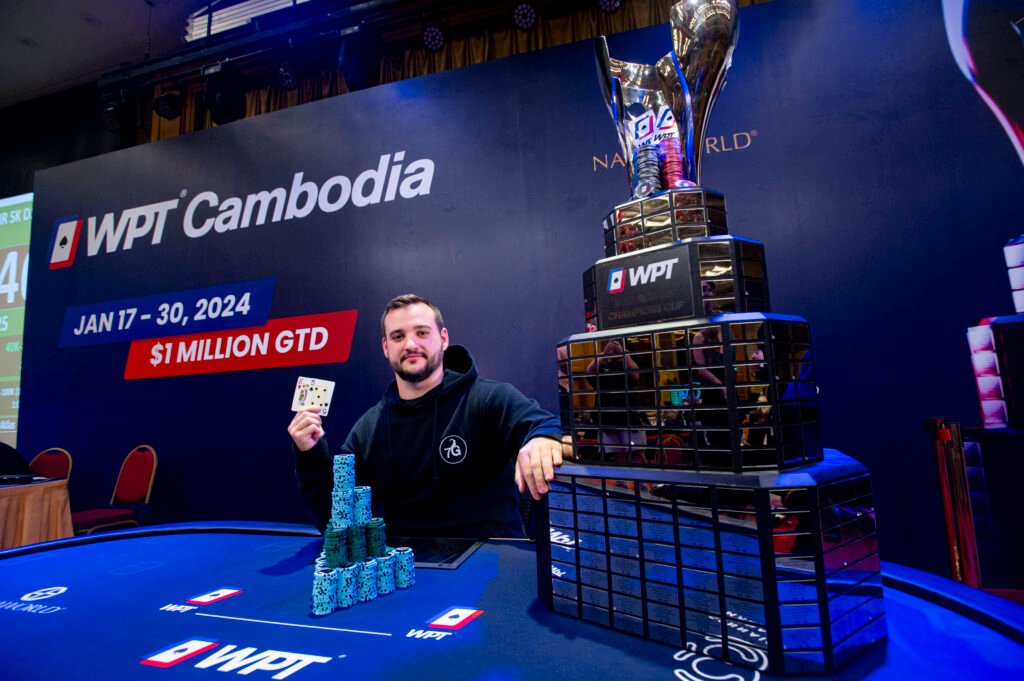Poker tournaments are one of the most exciting formats of the game, offering players the chance to turn a small buy-in into a life-changing score. Unlike cash games, where chips represent real money and players can enter or leave whenever they wish, tournaments play out until one winner remains. This makes tournament poker highly competitive, strategic, and rewarding for those who can adapt to its unique structure.
The Basics of Poker Tournaments
When you register for a tournament, you pay a fixed buy-in. This amount is divided between the prize pool and the tournament’s entrance fee. For example, in a $100 + $10 event, $100 goes into the prize pool, while $10 is taken as the fee. Every player starts with the same number of chips, ensuring a level playing field.
Unlike cash games, tournament chips hold no direct cash value. Once you lose all your chips, you are eliminated, and the tournament continues until a single player wins all the chips in play.
Tournament Structure
- Blinds and Antes
- Blinds (and sometimes antes) start small and gradually increase at fixed intervals.
- This rising structure forces action and ensures the tournament progresses toward a conclusion.
- Prize Pool Distribution
- Usually, the top 10–30% of players receive prize money.
- The deeper you advance, the larger the payout, with the final table offering the most significant rewards.
- Tournament Speeds
- Slow / Regular: Deeper stacks and longer blind levels, suited for strategic players.
- Turbo: Faster blind increases, more aggressive play required.
- Hyper Turbo: Extremely fast-paced; survival often depends on well-timed aggression.
Types of Poker Tournaments

Poker tournaments come in a variety of formats, each offering unique dynamics:
- Freezeout – Once you lose all your chips, you are eliminated (most common format).
- Rebuy & Add-On – Players can rebuy chips during an early stage or add more chips at a scheduled break.
- Bounty / Knockout (KO) – A portion of the buy-in is placed as a bounty on each player. You earn extra cash for eliminating opponents.
- Progressive Bounty (PKO) – Similar to KO, but half of the eliminated player’s bounty is added to your own, creating massive bounties later in the event.
- Shootout – You must win your table to advance to the next round, regardless of chip stacks.
- Satellite – Instead of cash prizes, winners earn entry tickets into larger, more expensive tournaments.
Tournament Rules You Should Know
- Late Registration: Most tournaments allow players to join during the early stages. Once registration closes, no new players can enter.
- Seating: Players are seated randomly, with rebalancing occurring as players are eliminated.
- Hand-for-Hand Play: As the money bubble approaches, all tables play one hand at a time to ensure fairness.
- Heads-Up Stage: When only two players remain, the button posts the small blind and acts first.
- Timebanks: Players are given a limited amount of time to act. Additional timebanks may be added at certain stages.
- Synchronised Breaks: Most online tournaments feature scheduled breaks at the same time each hour.
Online Poker Tournaments
With the rise of online poker, tournaments are more accessible than ever. Platforms offer:
- Multi-Flight Events: Players can enter multiple starting flights, carrying their best stack into the final day.
- Variety of Games: No-Limit Hold’em, Omaha, and even Short Deck formats are available in both full-ring and 6-max structures.
- Advanced Software: Online poker rooms provide seamless gameplay, table balancing, and automatic timebank systems.
Whether you are a beginner or a seasoned grinder, online tournaments provide flexibility in terms of buy-in levels, speed, and structure.
Final Thoughts
Poker tournaments are a test of patience, strategy, and endurance. Unlike cash games, survival and chip preservation are as important as aggression. Understanding formats like freezeout, rebuy, bounty, and satellites is essential for making the most out of your tournament experience. With proper bankroll management and a willingness to adapt, tournaments can offer both thrilling entertainment and the potential for massive payouts.
Frequently Asked Questions (FAQ)
What’s the difference between cash games and tournaments?
In cash games, chips represent real money, and blinds stay fixed. In tournaments, chips have no direct cash value, blinds increase over time, and play continues until one winner remains.
How is prize money distributed?
Generally, the top 10–30% of players are paid. The deeper you finish, the more you win, with the majority of prize money reserved for final-table players.
What does “the bubble” mean in poker?
The bubble is the point in a tournament where one more player must be eliminated before everyone left is guaranteed prize money.
Are online tournaments different from live ones?
The core rules are the same, but online tournaments usually feature faster blind structures, synchronized breaks, and more diverse formats like hyper-turbo or progressive bounty events.
What’s the best strategy for beginners?
Play conservatively in the early stages, avoid marginal spots, and gradually increase aggression as blinds rise. Patience and position are key.
